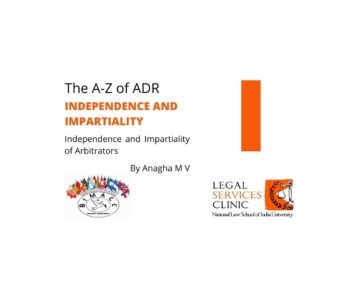ARBITRABILITY OF OPPRESSION AND MISMANAGEMENT (‘O&M’) CLAIMS
ARBITRABILITY OF OPPRESSION AND MISMANAGEMENT (‘O&M’) CLAIMS 1. Introduction to O&M Provisions and Claims in India Oppression and Mismanagement (O&M) claim provisions were included in the Companies Act (‘CA’) to prevent the trampling of rights of minority shareholders in situations […]
Read More







